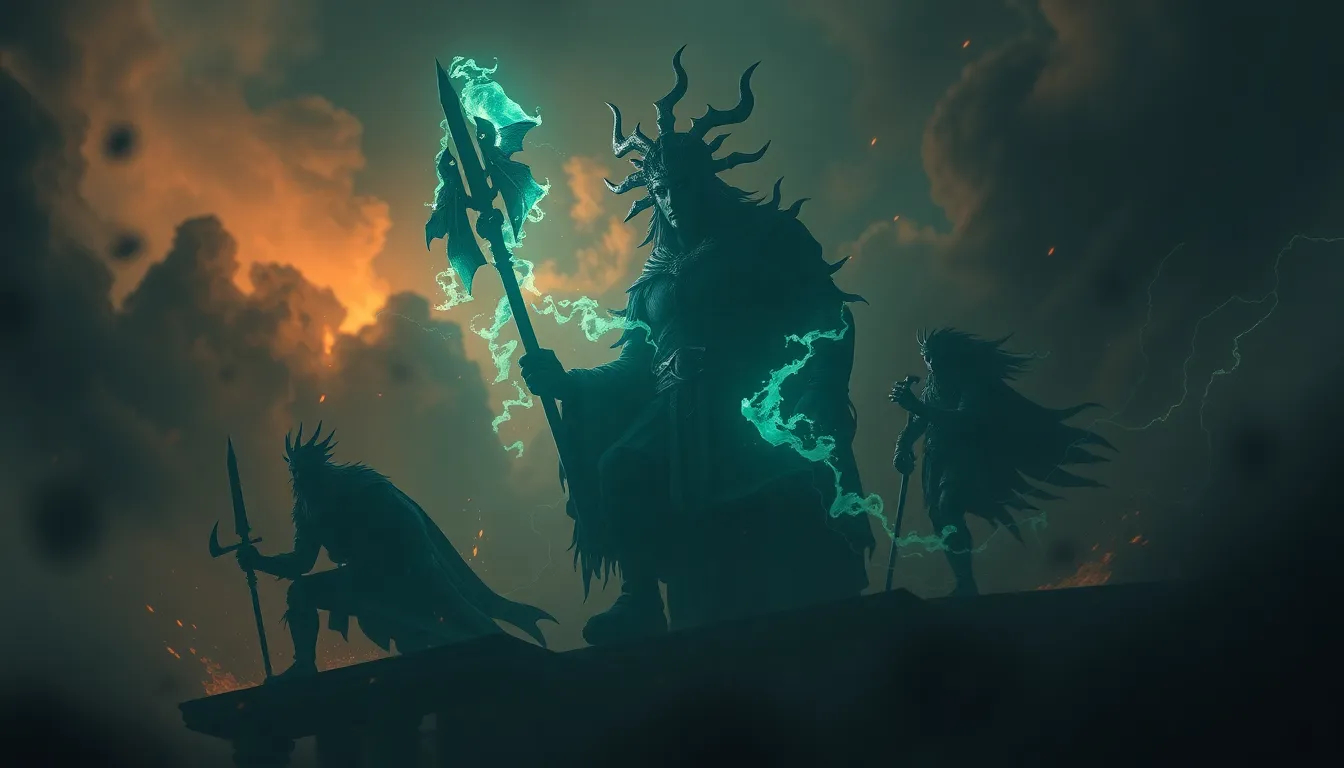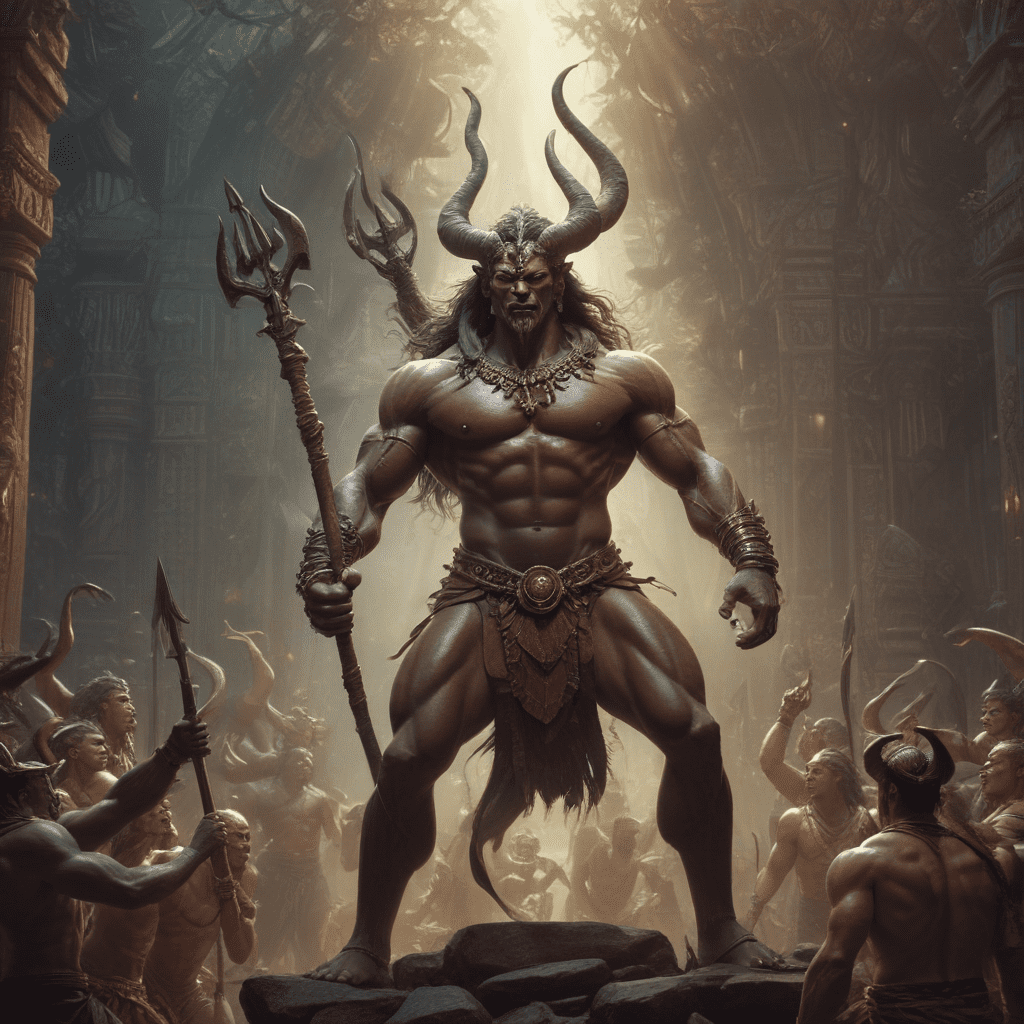The Heroes We Need: Mythical Figures of Resilience
Introduction: Defining Resilience in Mythology
Resilience is often described as the ability to recover from setbacks, adapt well to change, and keep going in the face of adversity. In mythology, resilience takes on a profound dimension as it showcases characters who embody the strength to overcome overwhelming challenges. Mythical figures serve not only as entertainment but as cultural cornerstones that shape our perceptions of resilience and inspire us to confront our own obstacles.
The Role of Myths in Human Experience
Myths have been integral to human experience, functioning as narratives that provide insight into the human condition. They often serve as cultural touchstones that reflect the values, fears, and aspirations of societies. Through their stories, myths illustrate the universal journey of overcoming adversity, thus connecting generations of humans who have faced struggles similar to those depicted in these tales.
Prominent Mythical Figures of Resilience
Across cultures, numerous mythical figures exemplify resilience. These characters often possess unique attributes and narratives that resonate deeply with human experiences. Here are a few notable figures:
- Hercules: A symbol of strength and determination.
- Mulan: A story of bravery and breaking societal norms.
- Odysseus: A master of cleverness and adaptability.
- Kali: A figure of destruction that also represents rebirth.
- Anansi: The trickster who uses wit to navigate challenges.
Hercules: The Heroic Journey of Perseverance
Hercules, known for his incredible strength, is famous for his twelve labors, each representing a formidable challenge. These labors are not just physical tests; they symbolize personal growth through perseverance. From slaying the Nemean Lion to capturing the Golden Hind, Hercules demonstrates that resilience is a journey filled with trials that ultimately lead to transformation.
For modern individuals facing challenges, Hercules teaches us that:
- Every obstacle can serve as a lesson.
- Persistence is often the key to success.
- Strength comes in many forms, including emotional and mental resilience.
Mulan: Breaking Barriers and Redefining Gender Roles
Mulan’s story is a powerful tale of a young woman who disguises herself as a man to take her ailing father’s place in war. Her journey is not just about bravery on the battlefield but also about breaking societal expectations and redefining gender roles. Mulan’s resilience shines through her determination to honor her family while challenging the norms of her culture.
Her narrative highlights important lessons:
- Resilience often involves stepping out of one’s comfort zone.
- True honor comes from courage, not conformity.
- Empowerment can arise from personal sacrifice and love.
Odysseus: The Quintessential Survivor
Odysseus, the hero of Homer’s “The Odyssey,” embodies resilience through his long and arduous journey home after the Trojan War. Facing numerous trials, including encounters with mythical creatures and divine beings, Odysseus relies on his cleverness and adaptability. His ability to think on his feet and navigate complex situations showcases the importance of mental resilience in overcoming life’s challenges.
Key takeaways from Odysseus’ journey include:
- Adaptability is crucial in the face of adversity.
- Resourcefulness can often determine survival.
- Endurance and patience are essential virtues on the path to recovery.
Kali: The Power of Transformation and Renewal
Kali, a prominent figure in Hindu mythology, represents the duality of destruction and rebirth. Often depicted as fierce and powerful, Kali’s narrative emphasizes that destruction can lead to transformation and renewal. Her story teaches that embracing change, however daunting, can foster resilience.
From Kali, we learn that:
- Change is a natural part of life and can lead to growth.
- Facing our fears can lead to empowerment.
- Resilience is often born from the ashes of what once was.
Anansi: The Trickster and the Resilient Mind
Anansi, the spider from West African folklore, is celebrated for his cleverness and wit. His tales often feature his cunning ability to outsmart stronger foes, highlighting the importance of intelligence and humor in overcoming challenges. Anansi’s stories demonstrate that resilience does not always come from physical strength but can also arise from a sharp mind and a good sense of humor.
Lessons from Anansi’s tales include:
- Humor can be a powerful tool in difficult times.
- Ingenuity often leads to unexpected solutions.
- Resilience can be found in the ability to laugh at adversity.
Lessons from Mythical Heroes for Contemporary Life
The stories of these mythical figures remind us that resilience is a timeless quality. As modern individuals face unique challenges, the lessons drawn from these ancient narratives remain relevant. Whether it is through Hercules’ strength, Mulan’s bravery, Odysseus’ resourcefulness, Kali’s acceptance of change, or Anansi’s cleverness, we can find inspiration to cultivate our own resilience.
Practical applications of these lessons can include:
- Setting realistic goals and persevering through difficulties.
- Embracing change and viewing challenges as opportunities for growth.
- Utilizing humor and creativity to navigate tough situations.
Conclusion: Embracing the Heroes Within Us
Mythical figures of resilience offer profound insights into our own lives. By reflecting on their stories, we can identify the heroes within ourselves. Each of us has the potential to embody resilience and rise above our challenges. As we explore the narratives that resonate with us, let us nurture our resilience and embrace the journey of personal growth, inspired by the timeless tales of bravery, strength, and transformation.




